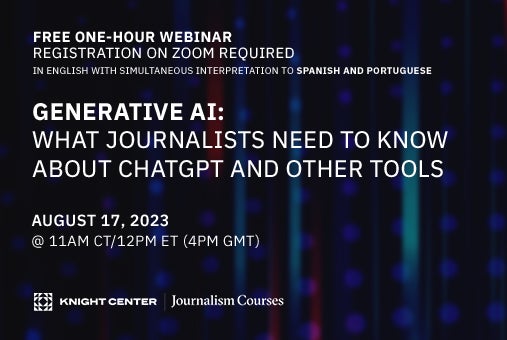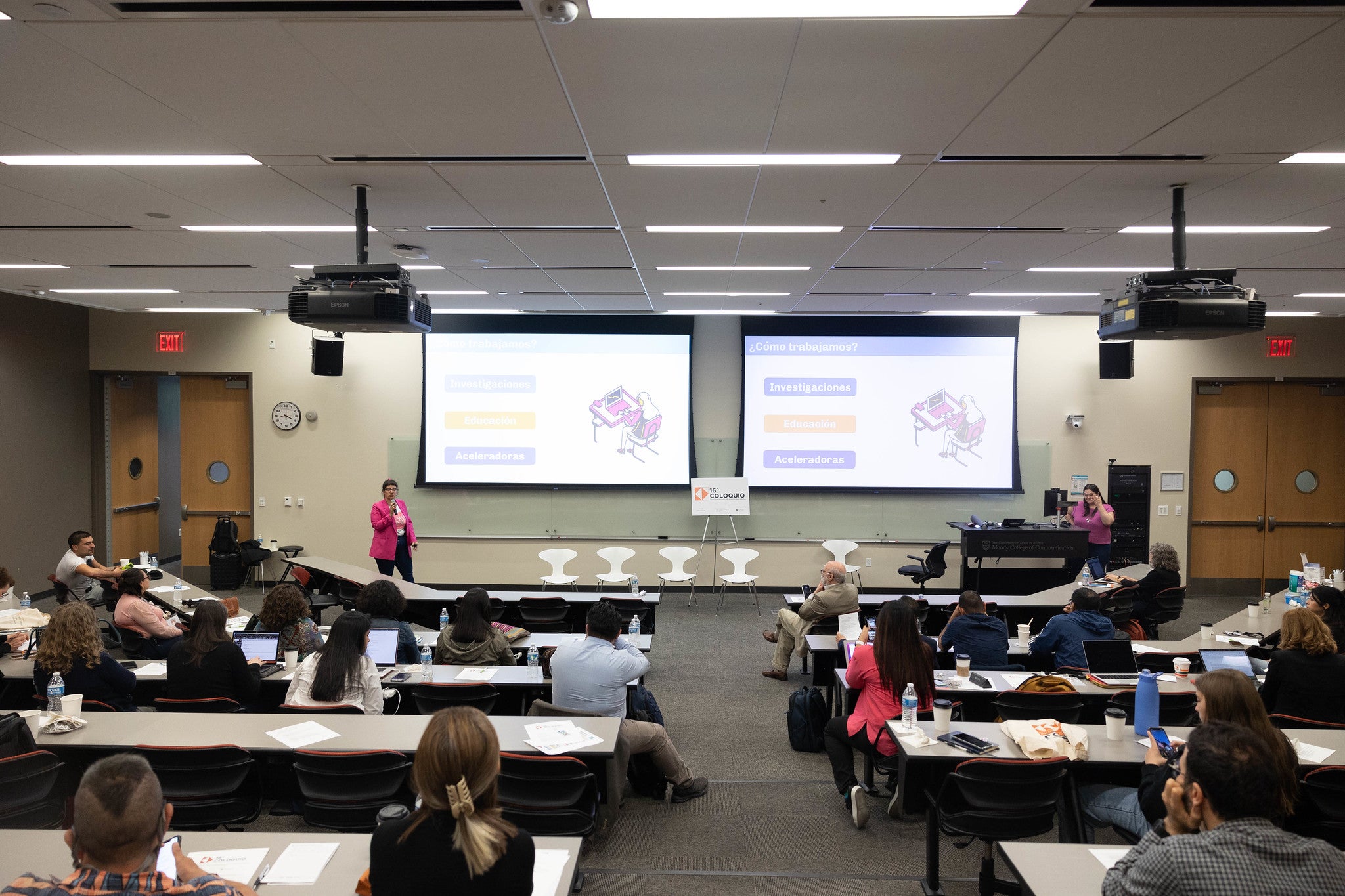
The report “Journalism, media and technology trends and predictions 2024” from the Reuters Institute predicts that this year, media and journalists in Latin America, and the world, will have to urgently rethink their role and purpose as they face the disruptive power of AI and a super election year.

Learn how to develop and implement your generative AI workflows during a new online course from the Knight Center for Journalism in the Americas in partnership with Hacks/Hackers. The course runs from Nov. 20 to Dec. 17, 2023. Registration is open for this paid course, with limited spots available!

The IAPA, ANJ of Brazil and the AMI of Colombia are some of the more than 25 media associations from around the world that signed the Global Principles on Artificial Intelligence, which seek to guide the application of said technology in an ethical and transparent manner, and to protect the credibility and intellectual property of journalistic content.

JournalismAI asked 105 news organizations in 46 countries — 16 of them in seven Latin American countries — how artificial intelligence is being used in newsrooms. The survey report explores the global disparity of AI and suggests collaboration to overcome the challenges of incorporating this technology into journalism.

A free online course from the Knight Center will put aside the hype around generative AI and get down to the basic principles of how the technology works, how it might function in newsrooms and the ethical implications to consider when using it.

Speakers at the webinar "Generative AI: What journalists should know about ChatGPT and other tools" shared a list of useful artificial intelligence resources for journalists to explore the advantages of this technology. LatAm Journalism Review (LJR) shares the list with additional information about each tool.

Panelists at a Knight Center webinar on ChatGPT in newsrooms suggested experimenting with generative artificial intelligence to understand its scope and limitations, learn how to develop effective prompts, and consider the opportunity to revolutionize the way news is delivered using this new technology.

Join the Knight Center for Journalism in the Americas for a free online course that will explore how generative artificial intelligence (AI), like ChatGPT, has and will impact journalism. “How to use ChatGPT and other generative AI tools in your newsroom” will run from Sept. 25 to Oct. 22, 2023.

“Generative AI: What journalists need to know about ChatGPT and other tools” will be on Thursday Aug. 17, 2023 at 11 AM U.S. Central Time. This hour-long webinar will be held in English, with simultaneous interpretation to Spanish and Portuguese.

In addition to thousands of victims, Colombia's armed conflict has also left a trail of silence and invisible stories in different regions of the country. Through a project that combines art, science and journalism, reporter Ginna Morelo and the Entre Ríos Museo team seek to rescue Colombia's collective memory.

Faced with the disinformation created by images generated with artificial intelligence, a project led by Adobe seeks to implement a technological standard that provides data on the origin and alterations of digital content on the Internet. Although it is in its early stages, more than 50 news outlets and fact-checkers in Latin America have already joined as members.

Several journalism and journalism-related initiatives presented their steps forward, lessons learned and future projects during a panel entitled "Lightning session: Lessons and innovative cases," at the 16th Ibero-American Colloquium on Digital Journalism, on April 16.